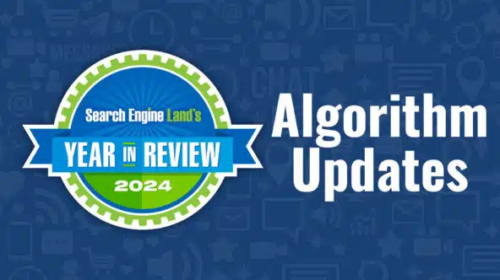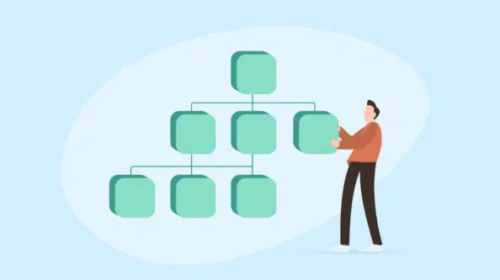AMA: Common Local SEO Mistakes Made By Businesses Big & Small
Have questions about local SEO? Columnist Andrew Shotland has anticipated these questions and is answering them, Reddit-style!

Hi, everybody. I am Andrew Shotland, founder of Local SEO Guide. Seems like every day, we run into multi-location and small businesses having problems with their local and organic Google rankings. My guess is you are reading this because you’ve got some problems of your own. So go ahead. Ask me anything!
Note to the uninitiated: This post is done in the style of a Reddit AMA (Ask Me Anything), in which users ask questions to people who are knowledgeable about a topic. Here, our esteemed columnist is identified as “localseoguide,” who is answering questions from hypothetical inquirers.
[-] multilocomonsterbrand
We grow by acquiring competitor locations. Seems like every time we do this, we kill the new location’s local rankings. Doesn’t exactly make for a fun honeymoon.
[-] localseoguide
Hey Multiloco, rebranding a location is one of the quicker ways to tank your local rankings.
You are likely changing the name of the business and the phone number which can cause a mismatch in your NAP (Name, Address & Phone Number) across various services on the Web that Google looks at to help it figure out if it should rank the business for various queries.
Inconsistent NAP issues can lead to local ranking problems. While there’s no easy way around this, we typically use the following approach when rebranding a location:
- Domain Name Changes. Avoid changing your domain name (see here, here and here for why this process sucks and advice on how to do it). Do not mark your old brand’s GMB page as “permanently closed”. This can cause all sorts of problems if you can’t get Google Local Support to merge it with your new brand’s GMB page.
- Up-To-Date Business Data. Update your business data everywhere, particularly at the main citation sources and data aggregators. Terminate with extreme prejudice any old NAP listings you can find, including any old inconsistent NAP Info for the acquired location (e.g., the name it had two names ago, the phone number it had five phone numbers ago, etc.)
- 3. Rebranded Website. Update your business name, etc. on your website. Can’t tell you how many times I have seen this one.
- Google My Business. Once you have fixed the citations and data aggregators, then go to your Google My Business page and update the NAP. We have seen the process of updating everything else before the GMB page can help speed the rankings recovery.
- Rebranding. Make sure on all your citations and website you include some “formerly known as {OLD BRAND}” language as people may still be searching for the old brand on Yelp or Google and you want to make sure that your new brand shows up for these queries.
- Changing Business Name. Check out The SMB Guide To Changing Business Names & SEO for more detail.
[-] thanksfortherankingsobama!
I tried everything you recommended above and our local rankings still blow.
[-] localseoguide
While there can be many reasons for a business not ranking, one of the primary issues we see a lot of agencies and DIYers miss is that they didn’t do a thorough enough job of cleansing the NAP data. Are you sure you found everything, or at least every major thing?
For example, did you check Google Mapmaker to make sure there weren’t any problems? Did you squash all the dupes at the main aggregators? Did you update the Facebook page?
We often see these things overlooked. There are a lot of tools that can help you figure this stuff out. We developed NAP Hunter, a free Chrome extension to make it easier to suss this junk out.
You also may want to check out the Local Data Ecosystem tab on our free Local SEO Audit doc. And I really like Joy Hawkins’ & Phil Rozek’s Google MapMaker Troubleshooting guides.
[-] imalawyerandusedtogettingmywaybutwtf
We have several attorneys in our practice and I hear that Google allows you to have listings for each attorney. Should I do this?
[-] localseoguide
Google calls these “practitioners” and there’s a good chance that if your staff are already listed in various industry databases that Google has already created GMB pages for them. This can be a tricky issue because sometimes these practitioner pages will rank well for good queries and sometimes they won’t.
But in general, our experience is that practitioner listings can act like dupes and we often see clients perform well if we “de-dupe” which basically means try to either merge them with the business’ main GMB page or remove the business’ branding from the listing and give them a unique phone number.
But before you start fixing the problem, make sure that none of these are ranking for anything as sometimes fixing this problem can do more damage than good. I really like Linda Buquet’s take on this issue in her Dr. Dupes & Google+ Local User Edits post.
[-] napattack
I am getting hit up by listings management vendors. Some have automated solutions while others do manual claiming of citations. Which works best?
[-] localseoguide
This is one of the multi-million dollar questions in local SEO these days. Our typical answer is there is no perfect solution and it often comes down to budget, time, labor and other stuff particular to your business’ situation.
Automated solutions like Yext* are pretty great for what they do, which is to quickly get control of your listings on approximately 50 local directory sites and allow you to update them — many in real time.
These solutions also have a duplicate suppression service that we like. So if you want the work done fast with minimal effort, and you want to be able to update your listings whenever you want, automated is a good solution.
But Yext doesn’t hit all of the data aggregators and it doesn’t hit some directories that may be important to you. In those cases, you need a manual solution.
Moz Local has an interesting service that hits the four big local data aggregators. There are some vendors that have automated these tasks to some degree with bots that can login for you; but sooner or later, a person needs to touch these and often these are low-wage, high-volume operations prone to error. But if you have a lot of locations and/or are unfamiliar with this stuff, there may be no alternative.
One common question about Yext is what happens when you stop paying them. In those cases, your listings get “unlocked” and sites may overwrite your data and screw it up. Of course the same thing happens with manual listings management. We have seen plenty of claimed and deduped citations get overwritten, screwed up, etc. This is one of the many reasons local SEO at scale can be aggravating.
[-] servicearea51
I do all my work out of a truck. How do I get ranked locally in cities where I don’t have a physical location?
[-] localseoguide
This is a tricky one. Google has been trying to tighten the radius on local results for a while and not having a physical location in your target city can make it hard to crack the local packs, particularly for high-density, competitive categories (e.g. restaurants, dentists, lawyers. etc.).
While many companies use virtual offices, P.O. Boxes, fake addresses and the like to try to game these results, we try to avoid tactics like these that we think Google is trying to snuff out.
In many cases, the best offense is to go for organic rankings (the non-local pack parts of the SERPs). I recommend How To Rank Outside of Your Physical Location in Google Places for further reading.
[-] linklessinlouisville
How do I do linkbuilding that can help my local rankings without getting crapped on by the Penguin?
[-] localseoguide
Linkbuilding is a challenge for every business. But we continue to see, particularly post Pigeon, that backlinks can overcome a lot of local SEO problems. So here are some easy ways to get started:
- Charity Sponsorships. List all of the charities you sponsor. If you don’t sponsor any, grow a heart and find some in your community and/or in your niche. Find out how you can get involved with them in a way that can generate a link.
Often this means helping out an event, becoming a sponsor, writing content for their site, etc. We find these types of opportunities provide some of the best links and feel good at the same time.
- Know Your Niche. Research all relevant media for your geo/niche and figure out which ones accept content. For example, our local newspaper site allows you to become a local blogger. Of course be careful with how you link back to your site, but that’s for another post.
- Seek Link Opportunities. Put a list together of all local groups and businesses that you are involved with. Is your kid in a local theater company? Are you a member of the local mother’s club? Part of a regular MeetUp group? All are good link opportunities.
- Local Citations. Make sure that you have all your local citations covered. These are often the easiest links to get and many get overlooked.
- Grab Attention. Do something crazy. Like make a crazy car dealer website. Ask for one star reviews. Or just be born with a really bad name. It’s the Attention Economy. Get some.
Ok. Enough with the questions. Back to work…
*Full disclosure: Andrew does some consulting for Yext on occasion and is totally in their pocket. Can you say “conflict of interest”? Don’t trust a word he says.





